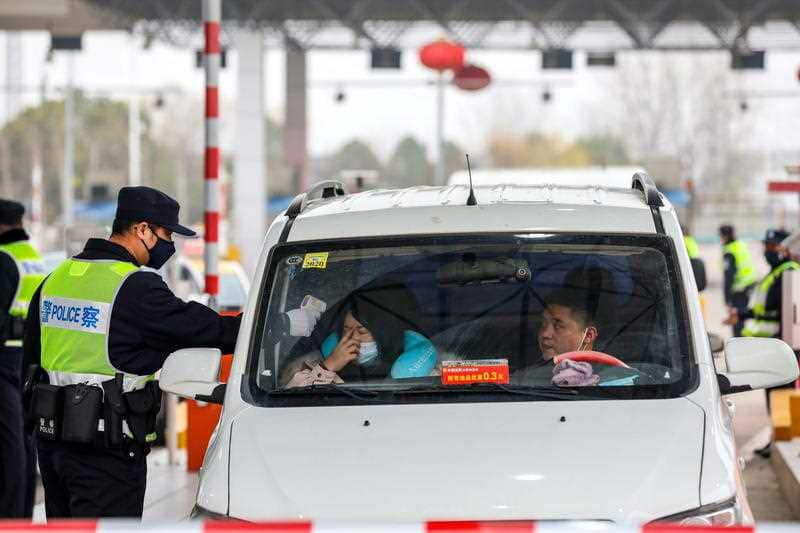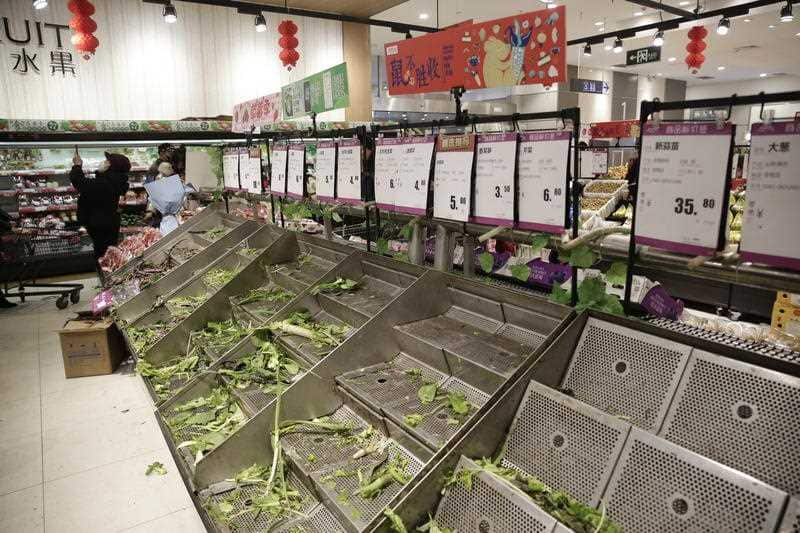Authorities in China reported on Thursday the first death outside of Hubei, the central province where a new SARS-like virus epidemic is believed to have originated.
The health commission in northern Hebei province, which borders Beijing, said in a statement the patient, 80, died on Wednesday but was not confirmed to have been infected with the virus until Thursday.
The death in Hebei increases the total death toll in China from the virus to 18.
It came after China locked down some 20 million people at the epicentre of the deadly virus outbreak, banning planes and trains from leaving in an unprecedented move aimed at containing the disease which has already spread to other countries.
Since emerging from a seafood and animal market in the central city of Wuhan, the virus has infected hundreds of other people and been detected as far away as the United States.
As efforts to contain the virus spread across China, Beijing cancelled massive gatherings that usually attract throngs at temples during the New Year holiday, while the historic Forbidden City will close from Saturday.
Streets and shopping centres in Wuhan were eerily quiet after authorities told residents not to leave the major city of 11 million people, where most of the cases have been identified.

Trains and planes out of Wuhan were indefinitely suspended and tollways on roads out the city were closed, leading to fear and panic for those who were trapped.
"We are feeling as though it is the end of the world," said one Wuhan resident on China's Twitter-like Weibo platform, voicing concerns about shortages of food and disinfectant.
Hours after announcing the Wuhan lockdown, authorities in neighbouring Huanggang city announced public transport and train services would be suspended at midnight, while people were told to not leave the city of 7.5 million.
All of Huanggang's cinemas, internet cafes and its central market will close.
Ezhou, a city in Hubei province with a population of 1.1 million, announced the train station had been closed earlier in the day.
Three other cities in the province had restrictions announced on their public transport or roads, including Lichuan, a city with a population of nearly 1 million.
State broadcaster CCTV reported that the government was allocating 1 billion RMB ($210 million AUD) for "prevention and control" of the epidemic in the province.

Empty streets
Wuhan's train station and airport, which should have been packed with people travelling for holiday family reunions, were almost empty Thursday.
Governor of Hubei province Wang Xiaodong told CCTV that closing off Wuhan had been a "very difficult decision".
But most Wuhan residents were willing to comply with the measure.
"The new pneumonia is our new common enemy," Shi Chengwei, a driver, told AFP.

The few people wandering in the streets of the city were wearing masks as mandated by police.
More than 570 people have been infected with the virus across China -- with most cases found in Wuhan, where a market that illegally sold wild animals has been identified as the epicentre.
The coronavirus has caused alarm because of its similarity to SARS (Severe Acute Respiratory Syndrome), which killed nearly 650 people across mainland China and Hong Kong in 2002-2003.
The first case of the new virus was confirmed on December 31, and it has since been detected in Japan, Hong Kong, Macau, South Korea, Taiwan, Thailand and the United States. Singapore and Vietnam confirmed their first cases on Thursday.
'Sealed off'
With hundreds of millions of people travelling across China this week for the Lunar New Year holiday, the National Health Commission announced on Wednesday measures to curb the disease nationwide -- including sterilisation and ventilation at airports and bus stations, as well as inside planes and trains.
Wuhan's special anti-virus command centre said the quarantine measures were meant to "effectively cut off the virus spread," according to state media.
China's airline authority urged airlines to "reduce flights" into Wuhan, and said 288 inbound flights were cancelled Thursday morning.

While departures were banned, trains and planes were still allowed into the city -- although there were no train tickets available on booking sites into Wuhan from most major cities and few flights available over the next few days.
Tom Solomon, a professor at the University of Liverpool, warned that imposing a lockdown could be "counter-productive".
"It can increase the level of panic, and just cause people to flee by other means," he said.
Unknowns
Animals are suspected to be the primary source of the outbreak, with Chinese health officials saying the virus originated from the animal market.
The WHO has confirmed that the virus can be passed between people, at least those in close contact. Chinese health officials warned it could mutate and spread further.
Chinese authorities on Thursday reported dozens of new infections, bringing the confirmed total to 571. About 5,000 people remain under medical observation.
But scientists at the Imperial College in London estimate that 4,000 people have been infected in Wuhan.
Additional reporting: Reuters


